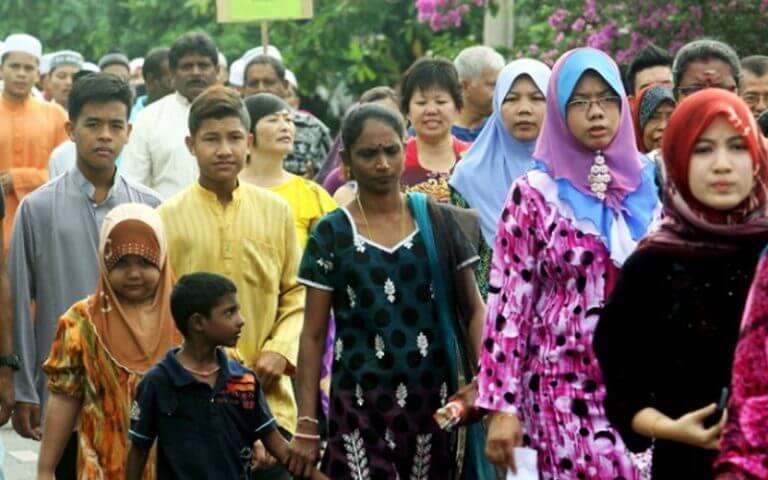PETALING JAYA: An academic has called for the adoption of a “Malaysian identity” which supersedes ethnic identities.
Speaking at a webinar organised by the Institute for Democracy and Economic Affairs (IDEAS) today, Rabi’ah Aminudin of the International Islamic University Malaysia (IIUM) said the problem with ethnic identities is that it leads to an “us versus them” mentality among the people.
In Malaysia, she said this narrative often manifests in the Bumiputera and non-Bumiputera labels.
But, she said, this does not mean forgoing ethnic identities, rather embracing a Malaysian identity.
She said although the Rukun Negara existed as a basis of national unity, it was hardly embodied in the way Malaysians identified themselves as members of a single community.
Rabi’ah Aminudin.
“It’s not about having to remove some of our ethnic identity, but how we can build another identity for all Malaysians to adapt to, without feeling threatened that their own ethnic identity is being compromised.
“So far, we only talk about food, but that is very symbolic. We haven’t discussed in-depth on what kind of values we Malaysians want to have,” she said.
Rabi’ah said most people were still secluded within their own ethnic bubble, which prevented discussions on other identity aspects, such as gender and socio-economic standing.
Lee Hwok-Aun.
Economist Lee Hwok-Aun, who works at the ISEAS-Yusof Ishak Institute, said while the frustration surrounding current policies on Bumiputera preference at public universities was understandable, such policies were also tools to develop a more competitive educational system.
“Increasing the number of non-Bumiputera students (at public universities) is ultimately not serving anyone in terms of raising the bar for academic achievements,” he said.
“We should get on board with the programme on developing Bumiputera ability because it ultimately benefits everybody.”
Lee said public institutions could also give more preference to the poor instead of Bumiputeras, to provide more opportunities to those from disadvantaged backgrounds.
Nizam Mahshar.
Institut Masa Depan Malaysia CEO Nizam Mahshar agreed, saying the real issue of pro-Bumiputera policies was actually poor delivery and implementation.
He said such policies had failed over the years as it was often open to corruption, leakages and abuse of power in the name of Bumiputera empowerment, adding that the lack of data made it difficult to push for reforms.
Editor’s note: The earlier version of the story reported that International Islamic University Malaysia’s Rabi’ah Aminudin had called for the terms “Bumiputera” and “non-Bumiputera” to be done away with. It has since been clarified that she had said a “Malaysian identity” should supersede ethnic identities. We have since amended the story and apologise for any misunderstanding.
Date: 18 November 2020
Source and Image from: Free Malaysia Today – https://www.freemalaysiatoday.com/category/nation/2020/11/18/do-away-with-bumiputera-and-non-bumiputera-says-academic/




